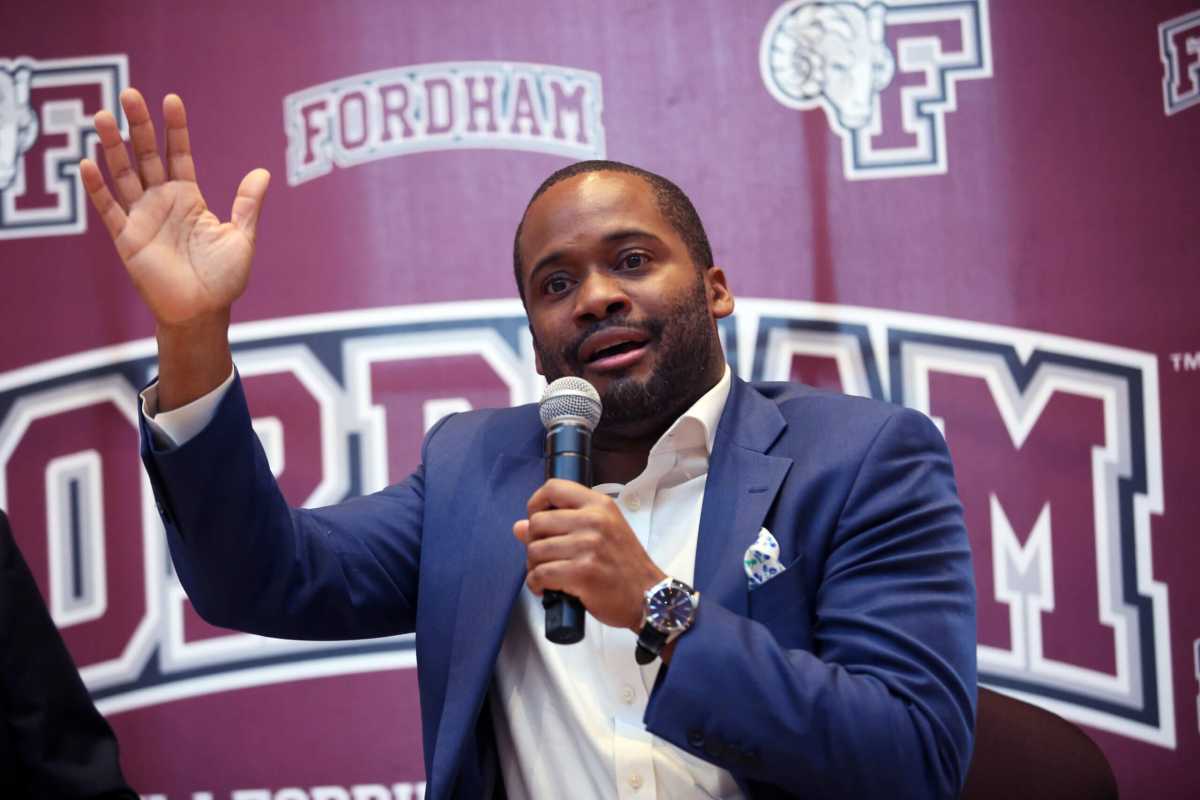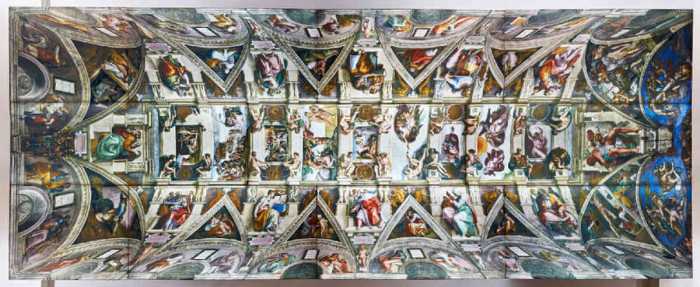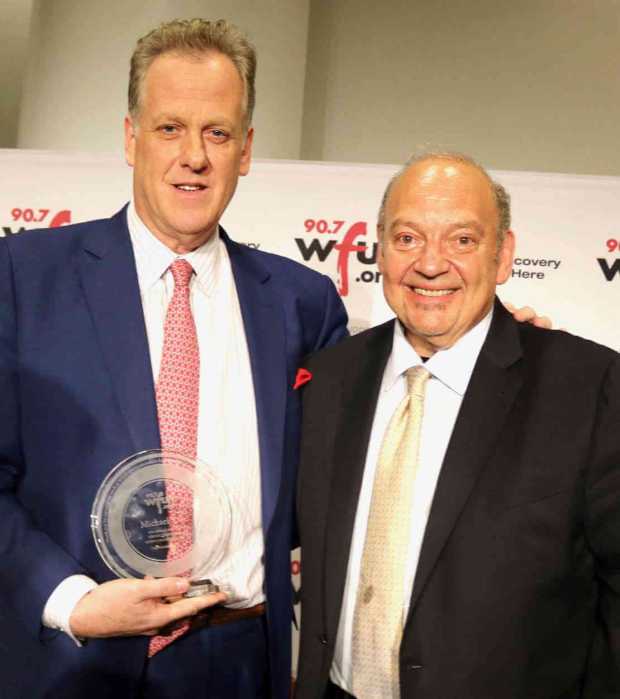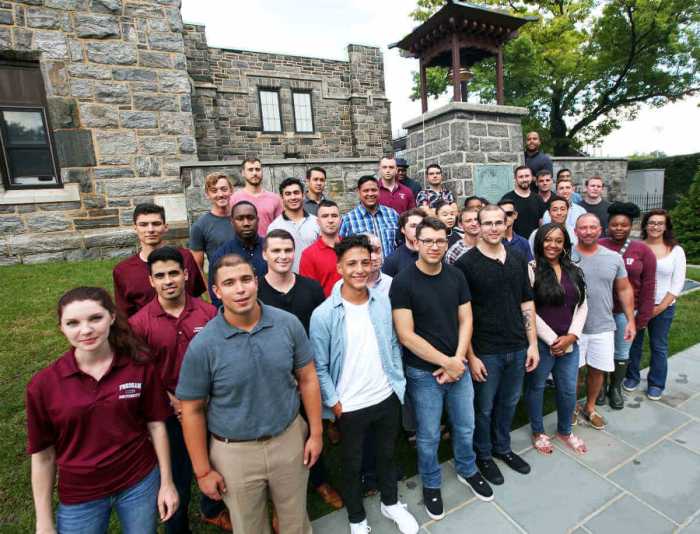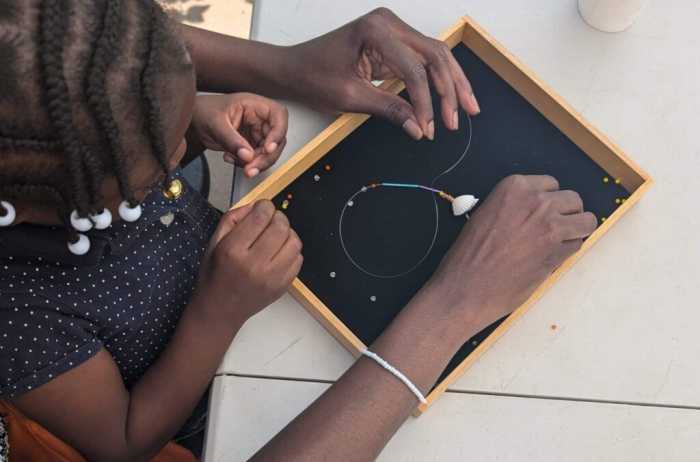A sea of college students fill the seats of Room 303 at McShane Student Center on April 17, wearing a mixture of athleisure and Fordham paraphernalia. Chatter reverberates around the room, books in hand. The man of the hour, Errol Pierre, comes in with the moderator — Fordham University’s Chief Diversity Officer Rafael Zapata — ready to begin the talk.
Pierre came back to his alma mater, Fordham University, on Monday to discuss his new book “The Way Up: Climbing the Corporate Mountain as a Professional of Color,” which he co-authored with award-winning writer Jim Jermanok.
The book is a guide to help marginalized groups get ahead in the corporate workplace and achieve the professional goals they have within that sphere through advice, strategies and Pierre’s own personal narrative — from beauty supply store warehouse to chief operating officer. Pierre, as senior vice president of state programs at one of the most notable health care nonprofits in New York, knew firsthand how hard it could be to climb up the corporate ladder, which he says is actually more like a mountain.
“The ladder means the rungs of the ladder are equidistant, you just come up. And I want to add this to my experience, it was like climbing a mountain,” said Pierre. “So the first piece was to tell everyone to not have the misnomer that corporate America is going to be a ladder.”
With the COVID-19 pandemic excessively impacting Black and brown people, as well as the 2020 murder of George Floyd, Pierre started to reflect on his journey. He began to think about how he could help people get to his position, but without all the hurdles and barriers he went through.
And thus “The Way Up” was born.
At 35, he was the youngest Black American COO at Empire BlueCross BlueShield. But Pierre was not fulfilled, so he resigned. This moment serves as the first chapter of the book — a reminder for people to follow their purpose and passion.
“Purpose (is) what’s your reason for being on the planet. … Passion is what fuels you. … And if you mix the two together, you will find gold,” he said.
While Pierre doesn’t regret the experience, he said it taught him “sometimes it’s okay to say this is not for me and it’s not failure. It’s finding out more about yourself.”
One example of passion and purpose for Pierre is health equity.
Growing up and experiencing the inequity of health firsthand led him to his career in making sure people have access to health care. Due to a $1,000 out-of-pocket maximum on his dad’s dental insurance, Pierce could not afford to finish his $3,000 root canal as a young teen. He had to wait till Jan 1. for the amount to replenish again.
“And that’s what really got me focused on health insurance and healthcare, because there’s got to be a better way, we can’t tell millions of Americans to come back next year to finish health care procedures,” said Pierre.
Just like the root canal incident was a defining moment for Pierre, so was a traumatic racial experience he had at 21.
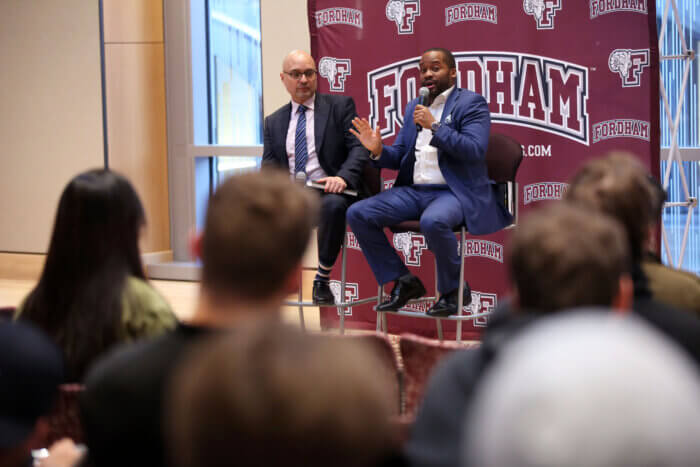
Pierre recalled an encounter with the police during his senior year at Fordham during the height of stop-and-frisk in New York City. Pierre was on Arthur Avenue when plainclothes officers arrested him to the ground at 11 p.m. without providing a reason as to why he was being stopped. He was eventually let go from his holding cell but not without a Class E Felony for resisting arrest issued.
With the help of his Haitian parents, he paid $5,000 for an attorney. He also gathered character witness statements from all around Fordham University, including one from his track coach. The police dropped the case and his record was expunged after 10 years.
Although he said serving 10 years of probation felt like being in “invisible handcuffs,” Pierre knew how lucky he was to have an attorney and character witness testimonies, when that’s not the case for many Black and brown men. He said his life could have ended up very differently.
Policies like stop-and-frisk that, Pierre noted, target people of color and put them in prisons disproportionately. According to the New York Civil Liberties Union, 90% of police stops in 2021 were people of color and 60% of those were Black people.
This was a hard moment for Pierre to retell. He hadn’t talked about the encounter for seven years because of the shame the memory used to fill him with. But after reflecting on this situation, which he calls an identity defining moment (IDM), he wants others to realize how people who look like him are treated in society. He believes, however, that if everyone works together to focus on policy changes, “we all can fix it.”
It is through experiences like these that Pierre urges not only professionals of color to read his book, but also non-professionals of color and anyone in positions of power such as managerial roles. Pierre feels it will assist in helping them to understand underrepresented people and create a better environment where they empathize, sympathize and understand dynamics.
In response to a student’s question during his speech at Fordham last week, Pierre said he believes there is value in having more people of color in the corporate world. The author shared that three studies from McKinsey, a global consulting firm, supports that statement: for example in 2019, McKinsey found that the more diverse a company is, the better it performs — 36% better in fact.
Through writing this book, Pierre said he wanted to provide mentorship for others. He believes it’s integral to helping professionals of color climb the corporate ladder. But it is also important to give back, he said, if you are fortunate enough to be blessed.
“And if I didn’t have a mentor, I would have been lost. And so I can’t imagine people that navigate corporate America that don’t have mentorship. Mentorship is so important,” said Pierre.
He’s had plenty of mentors so far in his career, but one of the major ones he said he’s grateful for is a man named Jeff Grahling, president and CEO at Circulo Health, who hired him as an intern to a full-time position when they were both at Empire BlueCross BlueShield. He mentored Pierre without him realizing.
From mentoring to finding your passion and purpose, Pierre has many things he wants folks to take away from this book and his experience, but if they only take away one thing, he hopes it’s this:
“What I want people to take away from the book is to have the courage to make one million mistakes, and the wisdom not to make the same mistake one million times. That’s the biggest takeaway.”
This article was updated on April 25 at 9:20 a.m.
Reach Demetria Osei-Tutu at oseitutud13@gmail.com. For more coverage, follow us on Twitter, Facebook and Instagram @bronxtimes

